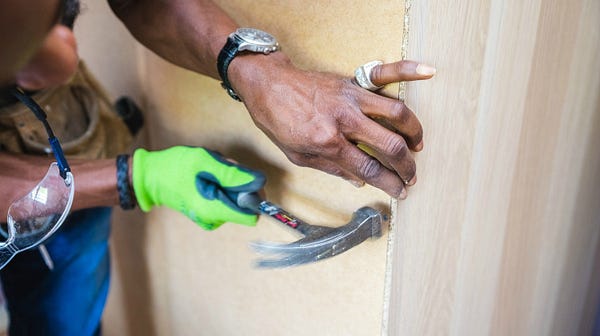The 5 Mistakes of a Beginner Flipper
It sounds easy! Buy a home, do some cosmetic repairs, put the house back in the market and make a big profit with the whole operation. A study of ATTOM Data Solutions points out that in 2018 some 208,000 flippings were sold, representing 5.6% of all sales of single-family homes and condominiums in the States United . However, the life of a flipper is not just to trim the grass and put SOLD boards in front of the houses. I have seen a growing number of adventurers who have risked their savings and often fail. In this article, I'm going to talk more about the 5 Greatest Mistakes that aspiring flippers commit - and how to avoid committing them.

First of all, my advice is that you down a financial risk limit and try to maximize the potential return each project . In other words, know what you are buying and do not pay more than really worth propriede, make sure how much will be needed for the house to be renewed before buying. This information will help you estimate the ideal home selling price.
The 5 most common mistakes of an aspiring Flipper are:
1. Budget
First of all, the first cost is the acquisition of the property. If the acquisition of the property is financed, you need to worry about paying interest. Keep in mind that every dollar spent on interest increases the amount you need to earn from the sale - this to achieve break even only.
Renewal costs should also be calculated. If you plan to renovate a house from top to bottom and sell it for profit, the sale price must be greater than the cost of ownership, the cost of owning the Property and the costs of renewal. It is a basic premise and that in the course of projects, beginners often forget.
2. Time
Finding the right property can take months for an inexperienced flipper. Renewing and flipping houses is in fact a business that demands time. Once the property has been purchased, it is normal to waste a few weeks on renovation and renovations. That's why it's important to have a team of skilled and efficient professionals around you, but do not empty your pockets at the end of the day.

Once the work is done, it is necessary to schedule inspections that will ensure that the property is in compliance before "returning" the house to the market. If the house does not pass these inspections, you'll need to spend more money and more time to meet the inspector's demands. Once approved, the house enters the market and may take a few days to receive an offer.
3. Skills

If you're good with tools, like carpentry, repairing roofs and installing sinks, you have some house flipping skills. On the other hand, if you do not know how to differentiate a Philips key from an Allen key, like the vast majority of flippers, you will need to pay for a professional service to do all the renovations. This implies directly in the project budget, and should be stipulated together with the renovation costs.
4. Knowledge
To succeed in this business, you need to find the right property in the right location at the right price. However, in a neighborhood where houses cost an average of $ 100,000, if you think you will find a home for $ 60,000 and be able to sell it for $ 200,000 you have made a mistake. This is too much of a market to let that happen often. And even though you've made the greatest find of all time - you need to know which renovations are top priorities and which ones you can quit doing to save money.
Also, you need to understand the taxes applied, the laws of each county and when it's time to cut spending before you see all your investment going downhill.
5. Perseverance
Professionals are waiting for the right property. Newbies get carried away by emotions and buy the first house that appears in front of them. Then they hire the first company that offers remodeling services he isn't able to run - and these usually charge through the nose. Professionals rely on a network of other professionals whom they trust and maintain a long-term win-win relationship.

Newbies are always in a hurry, skip steps in the house renovation process and believe that a layer of paint is enough to make a fortune, while professionals understand that buying, renovating and selling homes takes time and that sometimes the profit margins are leaner than in other projects done before.


